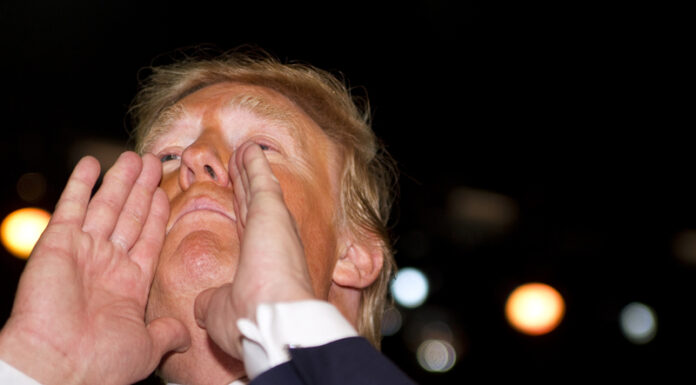A diplomatic meeting at the White House on Monday, October 20, 2025, took an unexpectedly tense turn when President Donald Trump confronted Australia’s ambassador to the United States during a bilateral session with Australian Prime Minister Anthony Albanese.
The confrontation centered on Kevin Rudd, a former Australian prime minister who has served as ambassador since March 2023. During the Cabinet Room gathering, an Australian reporter asked Trump about concerns regarding Rudd’s past social media posts critical of the president. Trump initially claimed he knew nothing about the ambassador, apparently unaware Rudd was present in the room.
When Trump questioned whether Rudd still worked for the Australian government, the ambassador acknowledged that his critical comments were made before accepting the diplomatic position. The president’s response was direct and unfiltered. “I don’t like you either, and I probably never will,” Trump told Rudd in front of the assembled officials and media.
The contentious posts date to 2020, when Rudd described Trump as the most destructive president in history and a traitor to the West. Another deleted post characterized the president as a village idiot. These comments, written years before Rudd’s appointment to Washington, had previously drawn Trump’s attention. Last year, Trump called Rudd nasty and suggested the ambassador would not remain in his position long.
Despite the awkward exchange, Trump reportedly told Rudd that all was forgiven just minutes after the initial confrontation. The room erupted in laughter following the president’s sharp remark, with Albanese later characterizing the entire incident as banter between the two men.
The tension occurred against the backdrop of significant diplomatic achievements. Trump and Albanese signed a critical minerals agreement involving projects worth up to $8.5 billion. Albanese indicated that Australia and the United States would each contribute $1 billion over the next six months for immediately available projects, though White House documentation later described a framework with more than $3 billion in investments for the same timeframe. The framework also establishes price-floor mechanisms for critical mineral exports and introduces safeguards to protect key commercial assets from acquisition by adversarial actors.
The rare earths deal represents a strategic effort to establish supply chains independent of China, which dominates global rare earths refining and processing. These materials are essential for manufacturing magnets used in weapons systems, semiconductor production, robotics, and electric vehicles. The Export-Import Bank of the United States will issue seven letters of interest totaling more than $2.2 billion in financing, potentially unlocking up to $5 billion in total investment. These LOIs went to firms such as Arafura Rare Earths, Northern Minerals, Graphinex, and others.
The Pentagon plans to invest in building a gallium refinery in Western Australia with a capacity of 100 metric tons per year. One project involves collaboration between Australia, the United States, and Japan.
Back home, Australian opposition leader Sussan Ley called Trump’s comments proof that Rudd’s position had become untenable, demanding his dismissal as ambassador. However, Albanese mounted a robust defense of his diplomatic appointee. At a Friends of Australia breakfast attended by American politicians, the prime minister praised Rudd’s efforts, challenging anyone to identify a harder-working ambassador on Capitol Hill, according to ABC News Australia.
Republican Representative Michael McCaul supported Albanese’s assessment, expressing relief that Rudd remained gainfully employed. McCaul noted that the ambassador participated extensively in negotiations for Aukus, the multibillion-dollar submarine agreement between Australia, the United Kingdom, and the United States. The Trump administration is currently reviewing America’s role in that defense pact as part of its America First agenda.
At an event marking mining giant BHP’s 140th anniversary, Albanese directly credited Rudd for the success of his two-day visit to Washington. He publicly thanked the ambassador for his hard work in facilitating the diplomatic achievements, including the rare earths agreement.
The meeting also touched on broader trade tensions between Washington and Beijing. Trump confirmed plans to meet Chinese President Xi Jinping in South Korea later this month and indicated he would visit China early next year. He said previous administrations had allowed China and other countries to take advantage of the United States, but stressed his desire to maintain positive relations with Xi while ensuring fair deals.
The president suggested he could respond to Beijing’s recent export controls on rare earths with tariffs or other measures, including restrictions on airplanes, and has threatened 100 percent tariffs on Chinese goods starting November 1 if Beijing does not reverse its position. He predicted that within a year, America would have abundant critical minerals and rare-earth supplies.








